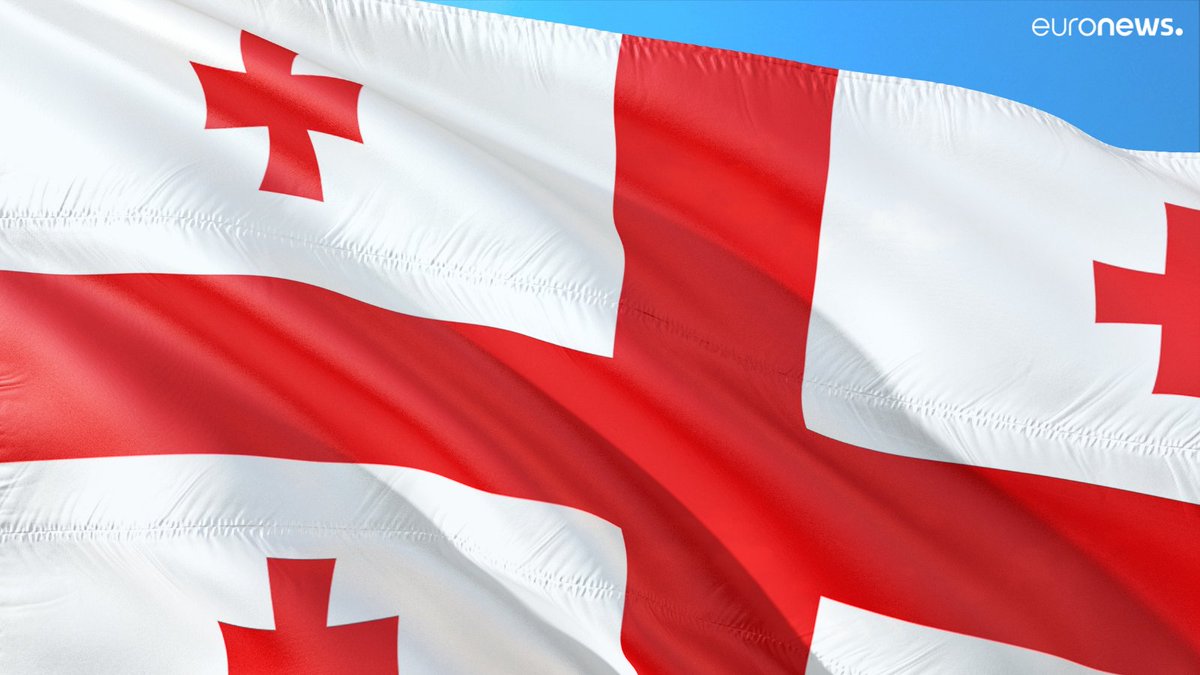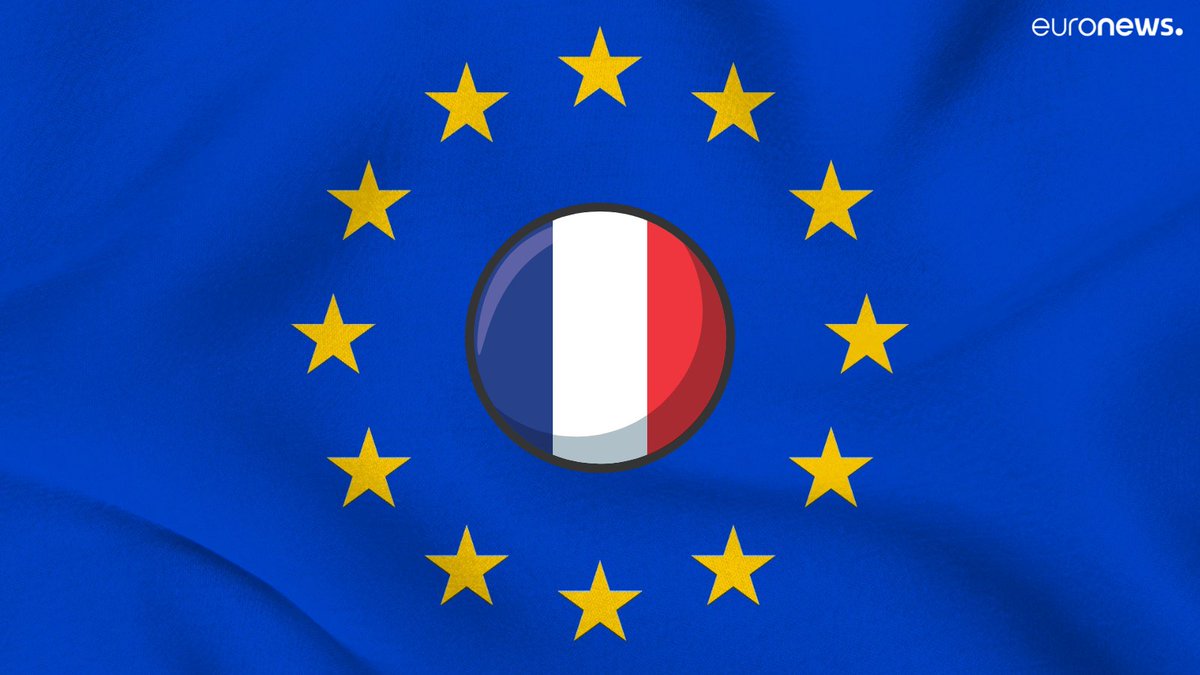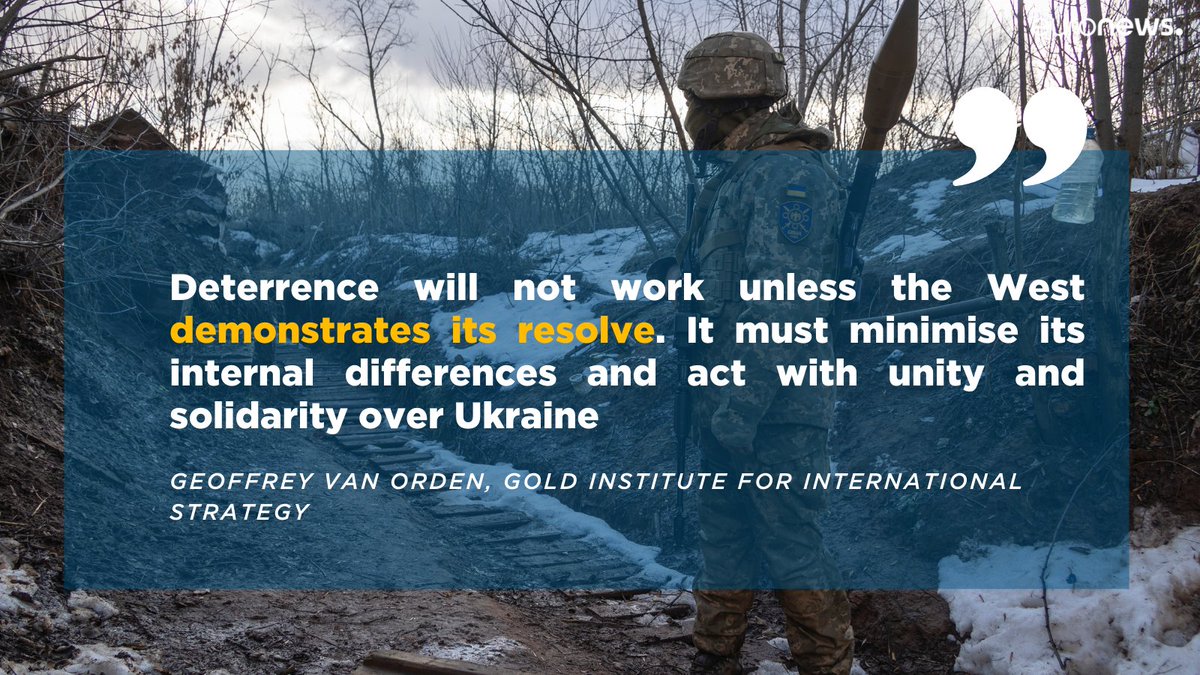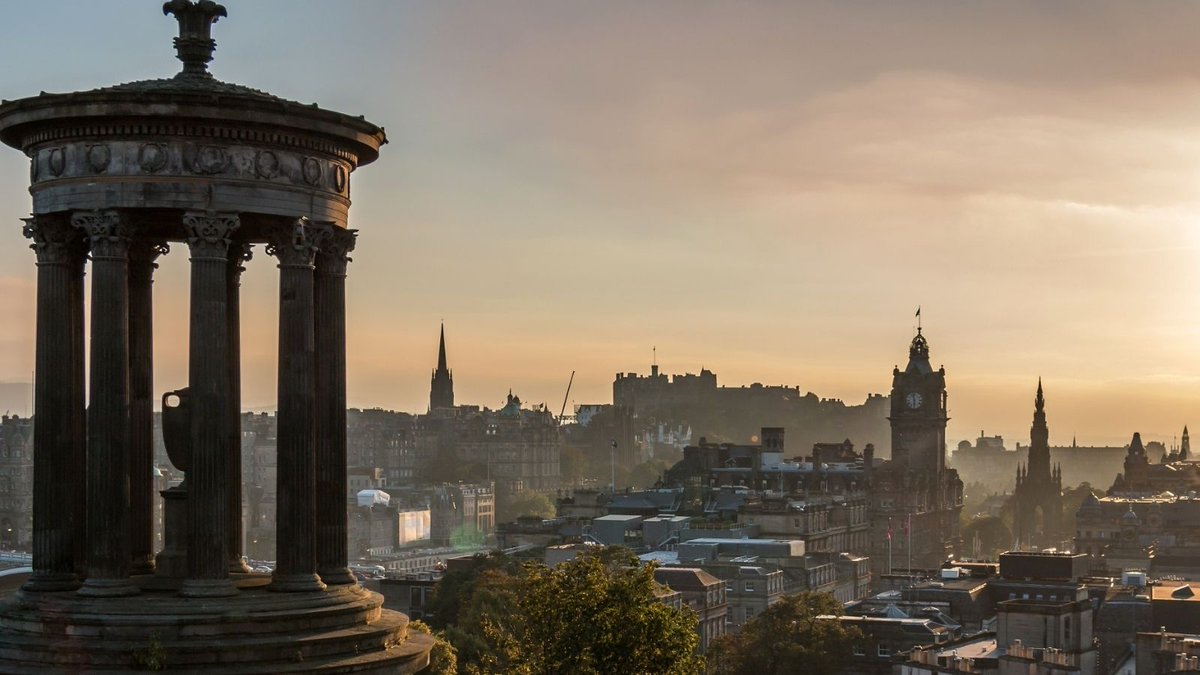
🇺🇦🇷🇺 Amid the noise of the pandemic, one issue has been ringing alarm bells across Europe and the West: Russia’s military build-up on the Ukrainian border.
US intelligence has warned that Russia may be preparing an invasion, but Moscow denies it.
US intelligence has warned that Russia may be preparing an invasion, but Moscow denies it.

🇷🇺 Many ask what Putin’s real intentions are and whether, if Russia does attack, what NATO and the West can do to respond in a sufficiently robust manner. 

🇫🇷 The crisis has called into question Western unity. It has also put the spotlight back on NATO in particular, two years after President Macron famously called the transatlantic military alliance "brain dead". 

📜 In December, Moscow set out its security demands in a proposed treaty with the US and an agreement with NATO.
Essentially, it wants guarantees that NATO will halt its expansion after it sent troops to countries vulnerable to Russia following the 2014 annexation of Crimea.
Essentially, it wants guarantees that NATO will halt its expansion after it sent troops to countries vulnerable to Russia following the 2014 annexation of Crimea.

🇷🇺 Some experts put Russia's intentions in starker terms.
For historian Françoise Thom, a specialist on Russia, Moscow's demands amount to "an orchestrated blackmail".
For historian Françoise Thom, a specialist on Russia, Moscow's demands amount to "an orchestrated blackmail".

🇷🇺 Moscow is also demanding that Ukraine not be offered NATO membership, and a draft treaty with the US banning it from sending forces to areas such as the Baltics and the Black Sea.
🇬🇪🇺🇦 NATO leaders promised future membership to Ukraine and Georgia back in 2008.
🇬🇪🇺🇦 NATO leaders promised future membership to Ukraine and Georgia back in 2008.

🇷🇺 So how should NATO respond to Russia?
"Obviously, Ukraine and Russia are aware that there is no real option of any military involvement from NATO's side,” said Peter Dickinson, a specialist on Ukraine at the Atlantic Council.
"Obviously, Ukraine and Russia are aware that there is no real option of any military involvement from NATO's side,” said Peter Dickinson, a specialist on Ukraine at the Atlantic Council.

🇺🇦 "NATO is revealing little of how it would react to Russian territorial aggression," says Geoffrey Van Orden of the Gold Institute for International Strategy, noting that the alliance has pledged "political and practical support" for Ukraine. 

🇷🇺 Politicians say that NATO must be united against Russian aggression, but such unity has been lacking in recent years.
When in 2019 he labelled NATO "brain dead", Emmanuel Macron accused the alliance of lacking a clear political strategy in the multipolar post-Cold War world.
When in 2019 he labelled NATO "brain dead", Emmanuel Macron accused the alliance of lacking a clear political strategy in the multipolar post-Cold War world.

🇫🇷 France has recently though become more of a spearhead for a unified European defence plan.
🇪🇺 As France takes over the EU presidency, Macron has called for "a stronger and more capable European defence" that contributes to transatlantic security and is complementary to NATO.
🇪🇺 As France takes over the EU presidency, Macron has called for "a stronger and more capable European defence" that contributes to transatlantic security and is complementary to NATO.

🇪🇺 Others are not so optimistic, with Peter Wahl of the alter-globalisation organisation Attac, arguing that European aspirations for enhanced military autonomy are unrealistic and an example of "Brussels' wishful thinking". 

🇷🇺 It’s also difficult because, when it comes to Russia, the EU and its member states speak with multiple voices.
🇵🇱🇫🇷 Whereas the likes of France, Germany and Italy promote dialogue with Moscow, Poland and the Baltic states want stronger sanctions.
🇵🇱🇫🇷 Whereas the likes of France, Germany and Italy promote dialogue with Moscow, Poland and the Baltic states want stronger sanctions.

🇺🇦 Geoffrey Van Orden of the Gold Institute for International Strategy says the need for Western unity is urgent, and "Ukraine needs tangible support". 

🇺🇦🇷🇺 How should NATO and the West respond to Russia’s military build-up near Ukraine?
Read in full: 👇 cutt.ly/RIqkAjV
• • •
Missing some Tweet in this thread? You can try to
force a refresh













